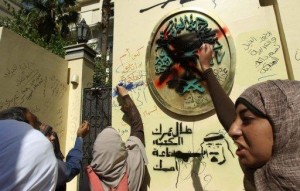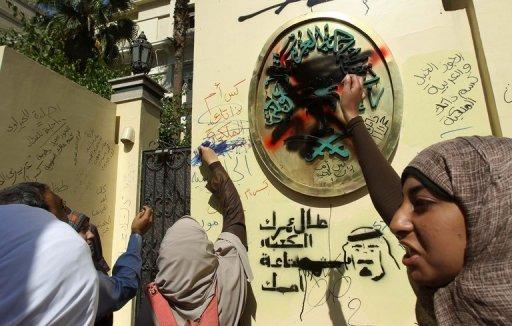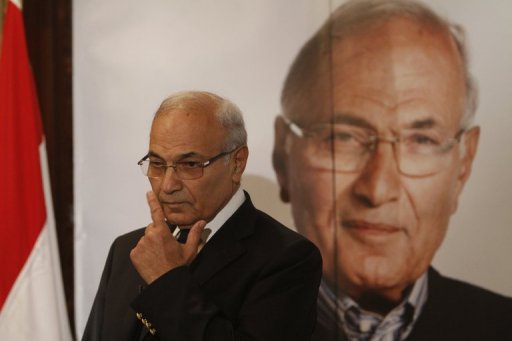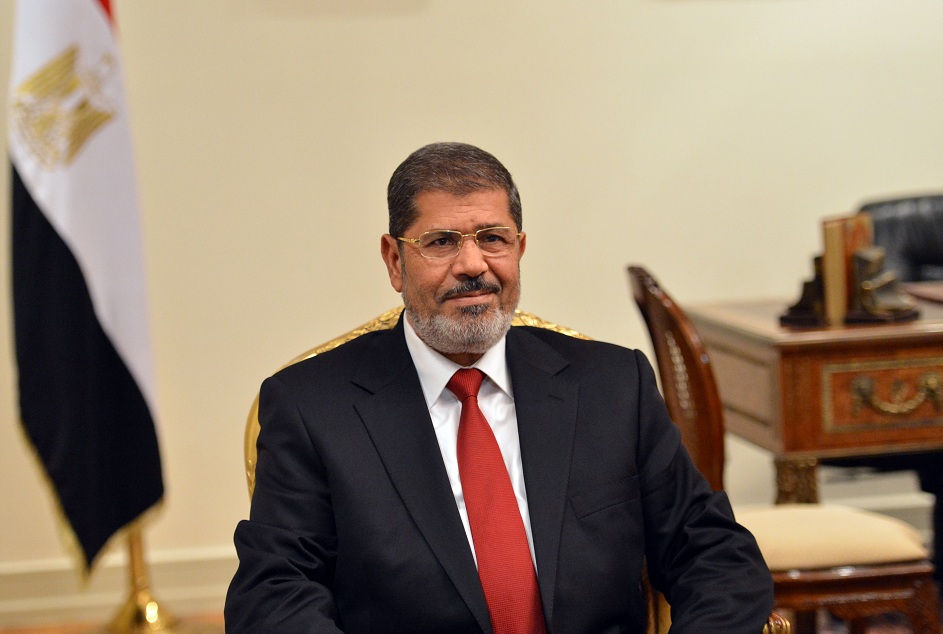
Approximately a dozen protesters gathered outside the Embassy of Saudi Arabia on Monday holding pictures and signs of loved ones currently detained in the kingdom.
“We’re here to demand the release of Egyptian prisoners in Saudi Arabia,” said Salah Abdallah Sayed, “or for them to have fair trials, using the Islamic Shari’a that they value so dearly.” Sayed said his brother Yasser has been in a prison in Saudi Arabia for three years and has not stood trial for any crime. “If they were criminals, they would have undergone trials,” he said. “He left three children here without a father,” added his other brother, Saleh.
“These people are unjustly detained and no one is doing anything,” said Shahenda Fathy, the wife of detained Egyptian lawyer, Ahmed Al-Gizawy. “There are Egyptians who have been detained without any charges, and there are others who have served sentences and have not been released.”
“And when a lawyer came to try to bring them justice and defend them, they arrested him and put him on trial,” she said in reference to her husband. “We won’t leave them and we’ll stay committed to their cause, whenever they increase the injustice, there will be more of us protesting. We won’t be silenced.”
Ahmed Al-Gizawy was arrested in April at King Abdulaziz International Airport in Jeddah for allegedly trafficking drugs into Saudi Arabia. Demonstrations at the Saudi embassy in Cairo later that month resulted in its temporarily closing and the creation of tension in the recently stable relationship between Egypt and Saudi Arabia. His trial continues on 14 November.
Nadia Emira joined protesters, holding a poster of her son, Mohamed Ibrahim, who she claims was sentenced to three years and 300 lashes. She claims he has been detained for one year beyond his sentence.
“All we demand is that those sitting on chairs actually move,” said Emira, pointing to the embassy behind her. “They take pleasure in torturing him,” she claimed.
Egyptian Najla Wafa was arrested in September 2009 following a business dispute with a princess of the Saudi royal family. She was sentenced to five years and 500 lashes, and many human and women’s rights organisations have called for an independent investigation examining her arrest, trial, and the punishment that many groups have referred to as “torture.”
The Egyptian Foreign Ministry, which many demonstrators blamed for complicity in Saudi Arabia’s treatment of Egyptians, could not be reached for additional comments.




